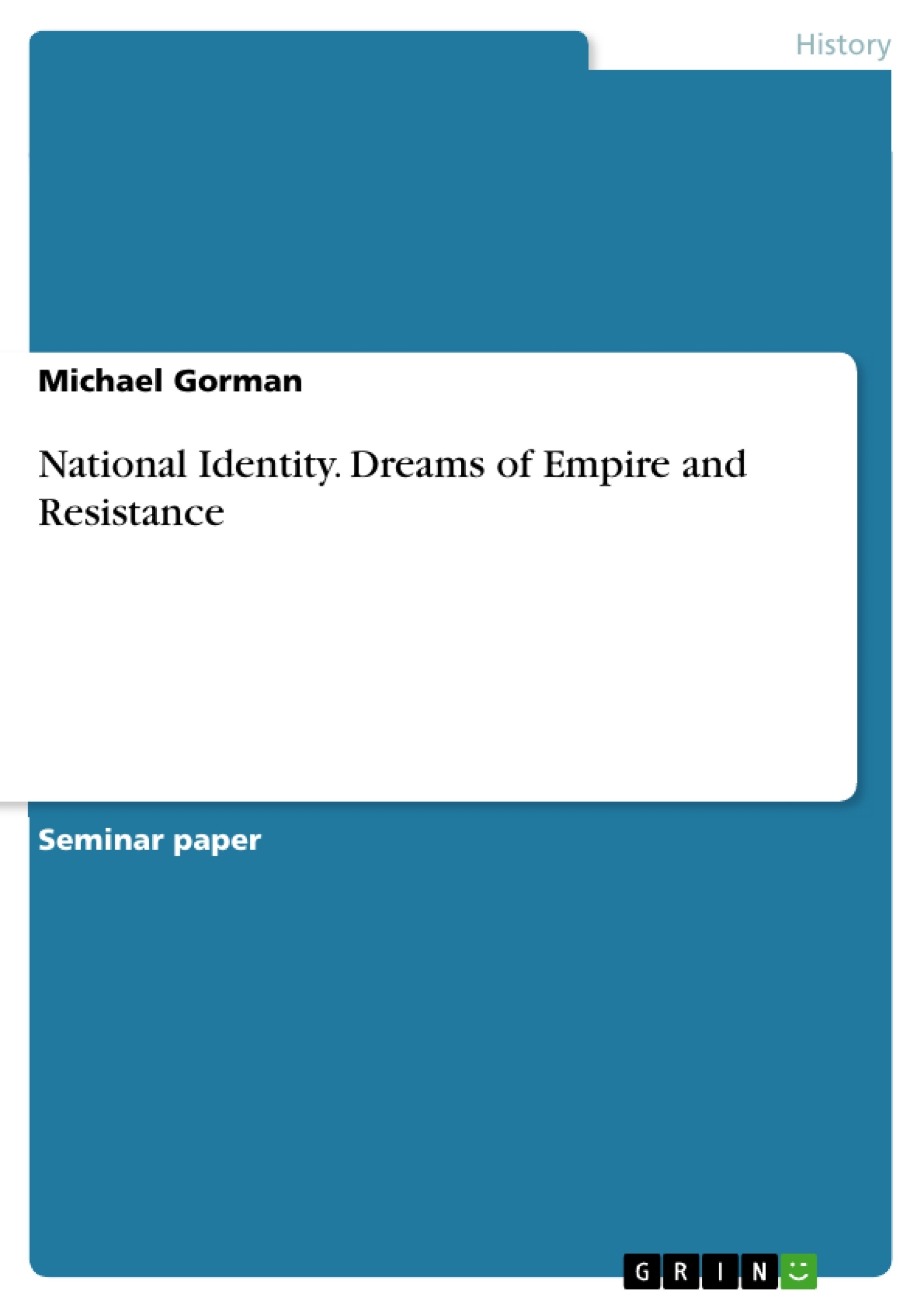National Identity is a term used to depict a person or group of people that, according to Benedict Anderson in his book 'Imagined Communities', can be organized and expressed into four classifications of nationalism.
The use of national identity has varied over the centuries and has been expressed differently by people in different geographical regions under varying circumstances, such as race, religion, geography and location of one’s community, language, distinct physical characteristics, or even who happens to be the ruling class.
Inhaltsverzeichnis (Table of Contents)
- Dreams of Empire and Resistance
- Creole Nationalism
- Defining Creole National Identity
- Class System
- Haitian National Identity
- Vernacular Nationalism
- Linguistic National Identity
- Macaulay's "Minute"
Zielsetzung und Themenschwerpunkte (Objectives and Key Themes)
This text explores the development of national identity, particularly in the context of European colonialism and resistance. It examines how national identity is shaped by factors such as language, religion, class, and race, and how these factors have influenced the creation of distinct national identities in different parts of the world.
- The evolution of national identity throughout history
- The role of colonialism in shaping national identities
- The impact of class and race on national identity
- The relationship between language and national identity
- The emergence of resistance movements against colonial rule
Zusammenfassung der Kapitel (Chapter Summaries)
- Dreams of Empire and Resistance: This chapter introduces the concept of national identity and its various classifications, as outlined by Benedict Anderson in his book Imagined Communities. It discusses the historical context of national identity formation, highlighting the role of colonialism and imperialism.
- Creole Nationalism: This chapter focuses on the development of Creole nationalism, which emerged in the Americas as a distinct form of national identity among European colonists. It explores the factors that contributed to the formation of Creole identities, including distance from the metropole, class structures, and racial dynamics.
- Haitian National Identity: This chapter examines the Haitian Revolution, a pivotal event in the formation of a Creole national identity in Haiti. It analyzes the role of race, class, and colonialism in shaping the Haitian Revolution and its impact on the development of a distinct Haitian identity.
- Vernacular Nationalism: This chapter shifts the focus to Europe and the emergence of vernacular nationalism in the 19th century. It explores the influence of an expanding global world on the development of national identities in Europe, highlighting the importance of language and cultural pride.
- Macaulay's "Minute": This chapter delves into the debate surrounding language and national identity in colonial India, as exemplified by Thomas Babington Macaulay's influential "Minute" on education. It examines Macaulay's views on the superiority of European languages and his arguments for promoting English education in India.
Schlüsselwörter (Keywords)
National identity, colonialism, imperialism, Creole nationalism, vernacular nationalism, language, class, race, resistance, revolution, Haiti, India, education, Macaulay, cultural pride, national consciousness.
Frequently Asked Questions
What is Benedict Anderson's definition of national identity?
Benedict Anderson describes national identity in his book 'Imagined Communities' as a form of nationalism that can be organized into four classifications, emphasizing that nations are socially constructed communities imagined by the people who perceive themselves as part of that group.
What is Creole Nationalism?
Creole Nationalism emerged in the Americas among European colonists. It was shaped by their distance from the European metropole, distinct class systems, and racial dynamics, leading to the formation of a national identity separate from their countries of origin.
How did the Haitian Revolution influence national identity?
The Haitian Revolution was a pivotal event that combined issues of race, class, and colonial resistance, resulting in the creation of a unique Haitian national identity that challenged existing colonial structures.
What is Vernacular Nationalism?
Vernacular Nationalism refers to the 19th-century European movements where national identity was built around shared language, cultural pride, and linguistic heritage as a response to a rapidly expanding global world.
What was the significance of Macaulay's "Minute" in India?
Thomas Babington Macaulay's "Minute" on education argued for the superiority of European languages and promoted English education in colonial India, illustrating the tension between colonial rule and indigenous national identity.
- Quote paper
- Michael Gorman (Author), 2011, National Identity. Dreams of Empire and Resistance, Munich, GRIN Verlag, https://www.grin.com/document/323319



